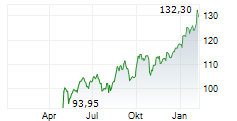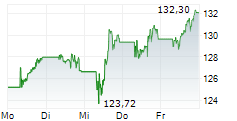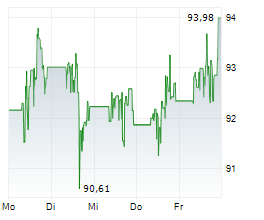The "Europe Liver Disease Therapeutic Market Forecast 2025" report has been added to ResearchAndMarkets.com's offering.
The Europe Liver Disease Therapeutic Market is expected to grow from US$ 4.34 billion in 2024 to US$ 8.29 billion by 2033, at a CAGR of 7.44% from 2025 to 2033. The rising incidence of liver-related diseases, development in therapeutic treatments, and an increase in awareness about liver health are major drivers for the market's sustained growth in the healthcare industry of Europe.
Europe Liver Disease Therapeutic Market Overview
Liver disease treatments involve a variety of medications used to treat, cure, or control diverse liver ailments including hepatitis, cirrhosis, fatty liver, and liver cancer. They range from antiviral medications, corticosteroids, immunosuppressants, and antifibrotic drugs to liver transplantation in serious conditions. In Europe, the occurrence of liver conditions has increased tremendously based on lifestyle such as alcohol use, obesity, and viral infections like Hepatitis B and C.
Rising aging population and the rise of non-alcoholic fatty liver disease (NAFLD) have further driven demand for advanced and efficient therapies. Governmental institutions and healthcare organizations in Europe are actively encouraging early diagnosis and timely treatment, thus driving the uptake of liver disease therapeutics. Additionally, pharma innovations and clinical trials keep accelerating therapy effects, rendering these therapies more accessible and effective. Liver disease therapeutics, therefore, have high importance and stable growth in Europe's healthcare.
Growth Drivers in Europe Liver Disease Therapeutic Market
Increasing Incidence of Liver Diseases
Europe is among the leading markets for liver disease therapy drugs, fueled by staggering figures that show liver cirrhosis alone is responsible for as many as 170,000 deaths every year on the continent. The increasing incidence of liver conditions-from fatty liver disease to cirrhosis and hepatitis-acts as a strong driver of expansion for the European liver disease therapy market.
This concerning development is further fueled by lifestyle factors, such as rising obesity rates, growing alcohol consumption, and the transmission of viral infections, that all contribute to compromised liver health. Governments and healthcare institutions, in turn, are increasing their emphasis on early detection and quality treatment, thus driving demand for novel and advanced therapeutic interventions across the region.
Advancements in Therapeutic Solutions
Recent advances in medical research and pharmaceutical development have brought with them a new dawn of more effective and more secure treatments for liver disease, greatly improving the care of patients. Advances in antiviral drugs, the fast-emerging area of immunotherapy, and improvements in regenerative medicine most notably through new stem cell therapeutic techniques are bringing about revolutionary gains in patient outcomes.
These advances are not only fostering improved health but driving the incorporation of liver disease therapeutics into Europe's healthcare systems, thus driving the growth of the market. In a remarkable development, the European Commission approved conditional in October 2024 Iqirvo (elafibranor) 80mg tablets for the specific treatment of primary biliary cholangitis (PBC). This is to be administered in combination with ursodeoxycholic acid (UDCA) and represents hope for better management of this difficult disease and highlights the continued advancements in liver disease treatments.
Supportive Government Initiatives
Governments in Europe are proactively implementing extensive health programs focused on decreasing liver disease-related mortality rates considerably. All such programs place significant value on early diagnosis and timely intervention, indicating a strong resolve to enhance public health. In support of these programs, more funding has been devoted to research, publicity campaigns, and healthcare infrastructure upgrades, making more effective therapeutic options easily accessible. These forward-looking steps are proving to be a vital part of developing a strong growth path for the therapeutic market for liver disease in the continent.
In February 2024, a groundbreaking research project at the Hanover Medical School (MHH) in the departments of Hepatology, Infectiology, and Endocrinology will venture into the promising future of RNA as a new therapy option for liver diseases. This pioneering study aims to explore particular RNA structures that can be exploited as therapeutic targets to manage the course of liver fibrosis and Metabolic Associated Steatotic Hepatitis (MASH). The ambitious initiative has received significant funding from the Boehringer Ingelheim Foundation, which is committing around £500,000 over three years under its Rise Up! program, aimed at promoting cutting-edge basic research in medicine.
Issues in the Therapeutic Market for Liver Disease in Europe
Exorbitant Costs of Treatment
The economic burdens brought about by sophisticated treatments for liver disease, including a variety of therapies like antiviral drugs, cutting-edge immunotherapies, and intricate liver transplantation procedures, are significantly high. These exorbitant expenses can cause a huge strain on healthcare systems, generally limiting access for patients, particularly in countries with limited healthcare funding. This financial burden may dampen market expansion, especially in areas where insurance coverage is low or government assistance is not available, leading to a cycle where most people do not have access to the critical care they require.
Limited Awareness and Late Diagnosis
Various liver diseases tend to advance quietly, with few to no symptoms until they are advanced. This is the factor responsible for a delay in both diagnosis and treatment, hence making patient outcomes complicated. Despite numerous campaigns for raising awareness at the public and professional levels, the numbers of early detection cases in many parts of Europe are still unacceptably low. This is a recurring problem that greatly hampers the efficacy of therapeutic interventions since dealing with advanced liver disease is more complicated, lengthy, and costly. Therefore, this kind of situation also inhibits the development of the market, restraining potential for innovation and enhancement in managing the liver's health.
Key Attributes:
| Report Attribute | Details |
| No. of Pages | 200 |
| Forecast Period | 2024 2033 |
| Estimated Market Value (USD) in 2024 | $4.34 Billion |
| Forecasted Market Value (USD) by 2033 | $8.29 Billion |
| Compound Annual Growth Rate | 7.4% |
| Regions Covered | Europe |
Key Players Analysis (Overviews, Key Persons, Recent Developments, SWOT Analysis, Revenue Analysis)
- Abbott Laboratories
- Astellas Pharma Inc.
- Bristol-Mayers Squibb
- Gilead Sciences
- GlaxoSmithKline Pharmaceuticals Ltd
- F. Hoffmann-La Roche Ltd
- Merck Co. Inc.
- Novartis AG
- Sanofi S.A
- Pfizer Inc.
- Takeda Pharmaceuticals
Market Segmentation
Therapy Type
- Anti-Rejection Drugs/Immunosuppressants
- Chemotherapy Drugs
- Targeted therapy
- Vaccines
- Immunoglobulins
- Corticosteroids
- Anti-Viral Drugs
Disease Type
- Non-alcoholic Fatty Liver Disease (NAFLD)
- Viral Hepatitis (B, C, D)
- Alcoholic Liver Disease (ALD)
- Autoimmune Liver Disease (ALD)
End Users
- Hospitals
- Laboratories
- Others
Country
- France
- Germany
- Italy
- Spain
- United Kingdom
- Belgium
- Netherlands
- Russia
- Poland
- Greece
- Norway
- Romania
- Portugal
- Rest of Europe
For more information about this report visit https://www.researchandmarkets.com/r/q7cjod
About ResearchAndMarkets.com
ResearchAndMarkets.com is the world's leading source for international market research reports and market data. We provide you with the latest data on international and regional markets, key industries, the top companies, new products and the latest trends.
View source version on businesswire.com: https://www.businesswire.com/news/home/20250909835270/en/
Contacts:
ResearchAndMarkets.com
Laura Wood, Senior Press Manager
press@researchandmarkets.com
For E.S.T Office Hours Call 1-917-300-0470
For U.S./ CAN Toll Free Call 1-800-526-8630
For GMT Office Hours Call +353-1-416-8900




